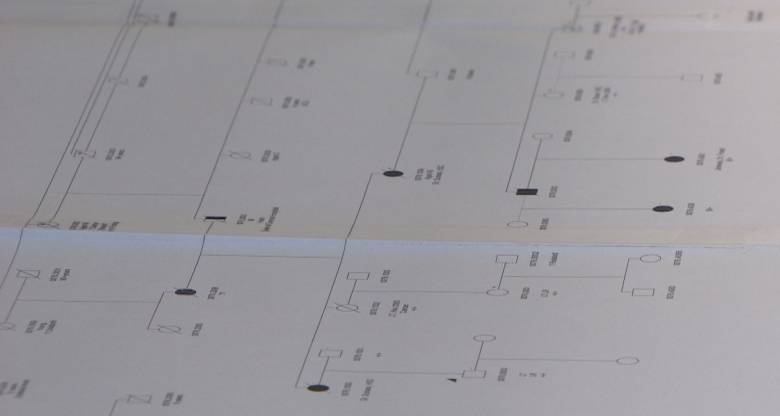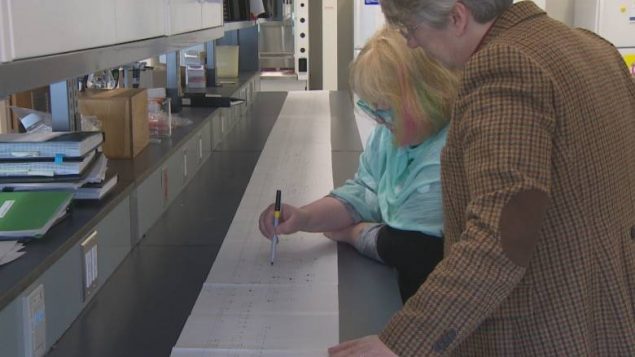The ‘Newfoundland Curse’, as a heart condition became known, focused the efforts of four researchers who were honoured today in Ottawa.
Passed down in particular families through several generations, the “curse”, led to the sudden death of 80 per cent of men and 20 per cent of women, before they turned 50.
Scientists and doctors diagnose it as arrhythmogenic right ventricular cardiomyopathy.
A group of genetic researchers at Memorial University in St. John’s, cracked the code providing the preventative measure that is now saving lives.

The Newfoundland Curse was lifted by four members of Memorial University’s faculty of medicine — from left, Sean Connors, Terry-Lynn Young, Kathy Hodgkinson and Daryl Pullman . They won a 2018 Governor General’s Innovation Award. (Mark Quinn/CBC)
“It’s a devastating disease in the absence of treatment, but sadly the first symptom may be their last — which is death. So they feel they are doing fine and suddenly they drop and they don’t recover,” Kathy Hodgkinson told CBC News.
Hodgkinson is a genetic counsellor and epidemiologist, who along with her three colleagues was honoured with the Governor General’s Innovation Award.
In an interview with the CBC’s Mark Quinn, cardiologist Sean Connors explained the cause:
“There are problems which are inborn errors in some families which is not a plumbing problem but an electrical problem. So think about the panel in your house — a breaker trips and the lights go out,” he said.
“If the electrical system of the heart shuts down, your heart stops beating and unless somebody comes to your aid with a mechanism to start your heart beating, you’ll die and your death will be sudden.”

The Newfoundland Curse traced: Researchers mapped out pedigrees for more than 25 Newfoundland families who lost members to sudden, fatal heart failures. (Mark Quinn/CBC)
The team looked into hundreds of family members from across the province and discovered the link, in “a small genetic difference between those at risk of the disease and those who aren’t” Quinn wrote.
“We found one single base pair change,” geneticist Terry-Lynn Young told him.
“So in other words, a single letter in the spelling of a word that changed the function of a protein. It was clear that everybody who had either died from this disease or who currently was affected had a single change. That was the only difference after searching for a long time through many genes.”
Young described the Eureka moment she shared with her colleagues.
“It was elation both for me and my students and the clinical team because at that very moment we had a 100 per cent proof way to say within a family that either someone’s affected and should be treated or is not going to be affected and doesn’t need treatment.”
They could identify the carriers with a blood test. “This is where we made a great breakthough,” Sean Connors said.
“We could go to patients and say, ‘Hey, we’re going to put a safety net in you.’ A small implanted defibrillator gets put in the heart and that becomes their safety net, and should the heart stop beating electrically, it can restart it in a matter of seconds. They died, for all intents and purposes, and within 10 seconds they’re back.”
The group was honoured, among other recipients today, when the 2018 Governor General’s Innovation Awards were presented by Gov. Gen. Julie Payette at Rideau Hall in Ottawa.







For reasons beyond our control, and for an undetermined period of time, our comment section is now closed. However, our social networks remain open to your contributions.